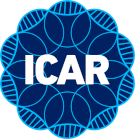Glossary: Reference Standard
Term:
Reference Standard
Abbreviation:
-none-
Definition:
A reference standard is a measurement standard designated for the calibration of a quantitative alternative method. The reference standard can be a recognized reference material with assigned values or a reference method. A reference method should be an internationally standardised method (i.e. ISO, IDF, AOAC methods, see Annex I with this Section). Instead of that, a rapid method can be used in case results have shown to be equivalent to those from the reference method (i.e. Gerber method for fat content, Amido Black method for protein content, enzymatic method for lactose content). Also a master instrument may be used to produce "reference values" for calibration of other instruments and for other operators in case of a system with centralised calibration. With traceable safeguards on their correctness, these “reference values” may be considered equivalent to the values of a reference standard. Application of a centralised calibration concept must take into account the sensitivity of routine methods to matrix effects (milk composition).
Reference:
ICAR Guideline
under development - section 12
(entry: 551)
